Related Research Articles
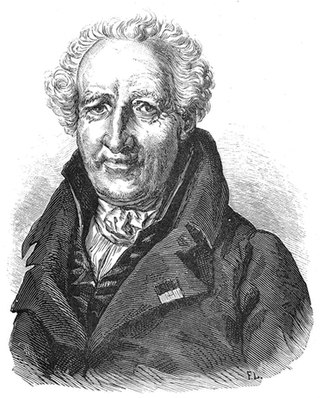
Antoine Laurent de Jussieu was a French botanist, notable as the first to publish a natural classification of flowering plants; much of his system remains in use today. His classification was based on an extended unpublished work by his uncle, the botanist Bernard de Jussieu.

Marie Jean Pierre Flourens, father of Gustave Flourens, was a French physiologist, the founder of experimental brain science, and a pioneer in anesthesia.
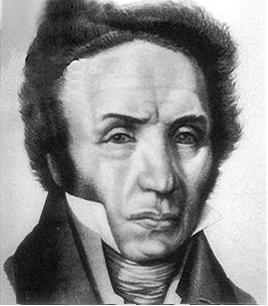
André Michaux was a French botanist and explorer. He is most noted for his study of North American flora. In addition Michaux collected specimens in England, Spain, France, and even Persia. His work was part of a larger European effort to gather knowledge about the natural world. Michaux's contributions include Histoire des chênes de l'Amérique and Flora Boreali-Americana which continued to be botanical references well into the 19th century. His son, François André Michaux, also became an authoritative botanist.

Augustin Pyramusde Candolle was a Swiss botanist. René Louiche Desfontaines launched de Candolle's botanical career by recommending him at a herbarium. Within a couple of years de Candolle had established a new genus, and he went on to document hundreds of plant families and create a new natural plant classification system. Although de Candolle's main focus was botany, he also contributed to related fields such as phytogeography, agronomy, paleontology, medical botany, and economic botany.

Sébastien Vaillant was a French botanist who was born at Vigny in present-day Val d'Oise.

Jules Paul Benjamin Delessert was a French banker and naturalist. He was an honorary member of the Académie des Sciences and many species were named from his natural history collections.
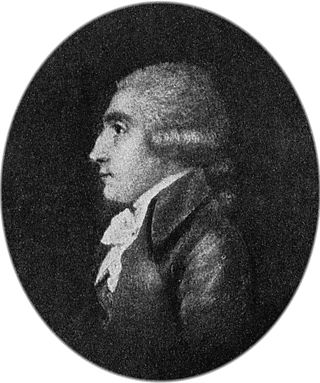
Jean Baptiste François Pierre Bulliard, also known simply as Pierre Bulliard, was a French physician and botanist. The standard author abbreviation Bull. is used to indicate this person as the author when citing a botanical name.

Jean Baptiste Christophore Fusée Aublet was a French pharmacist, botanist and one of the earliest botanical explorers in South America. He was one of the first botanists to study ethnobotany in the Neotropics.

Achille Richard was a French botanist, botanical illustrator and physician. The standard author abbreviation A.Rich. is used to indicate this person as the author when citing a botanical name.
Joannes Charles Melchior Chatin was a French botanist and zoologist.

Nestor Léon Marchand was a French medical doctor, pharmacist, and botanist. He is known for his studies of the flowering plant family Anacardiaceae.
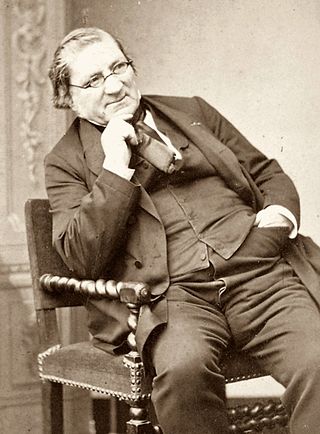
Claude Gay, often named Claudio Gay in Spanish texts,, was a French botanist, naturalist and illustrator. This explorer carried out some of the first investigations about Chilean flora, fauna, geology and geography. The Cordillera Claudio Gay in the Atacama Region of Chile is named after him. He founded the Chilean National Museum of Natural History, its first director was another Frenchman Jean-François Dauxion-Lavaysse. The standard author abbreviation Gay is used to indicate this person as the author when citing a botanical name.

Jean Vincent Félix Lamouroux was a French biologist and naturalist, noted for his seminal work with algae.
Jean-Pierre Bergeret (1751–1813) was a French botanist. He was born on 25 November 1751, in Lasseube (Béarn), and died on 28 March 1813, in Paris. He was the author of the following:
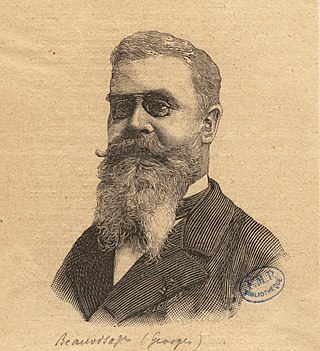
Georges Eugène Charles Beauvisage was a French botanist and politician.
Paul Amedée Ludovic Savatier was a French naval doctor and botanist.
The Mint of Navarre and Béarn was formed through the merger of the Mint of Navarre in Saint-Palais, whose construction was originally authorized by Charles the Bad in 1351, and placed under the authority of the Chambre des Comptes of Navarre on 4 January 1527, with the two Mints of Béarn in Pau and Morlaàs, in Béarn, in 1562.

Giles Munby (1813–1876) was an English botanist. His major work concerned plants in North Africa, where he lived for 15 years.
François-Étienne de La Roche was a Genevan physician, naturalist, chemist, botanist and ichthyologist.

Jean Baptiste Saint-Lager, born in 1825 in Lyon and died in 1912, was a French botanist and physician. In June 1881, he was made a member of the Academy of Sciences, Belles-Lettres and Arts of Lyon.
References
- ↑ "1813-1822". archive.wikiwix.com. Retrieved 2022-06-28.
- ↑ Medicine (U.S.), National Library of (1982). National Library of Medicine Current Catalog: Cumulative listing. U.S. Department of Health, Education, and Welfare, Public Health Service, National Institutes of Health, National Library of Medicine.
- ↑ Vermorel, Henri; Bergeret, Jean; Genthialon, Bernard; Vittet, Daniel (1999). L'oeuvre de Jean Bergeret: d'une pratique à une théorie de la clinique (in French). Delachaux et Niestlé. ISBN 978-2-603-01157-7.
- ↑ International Plant Names Index. Bergeret.